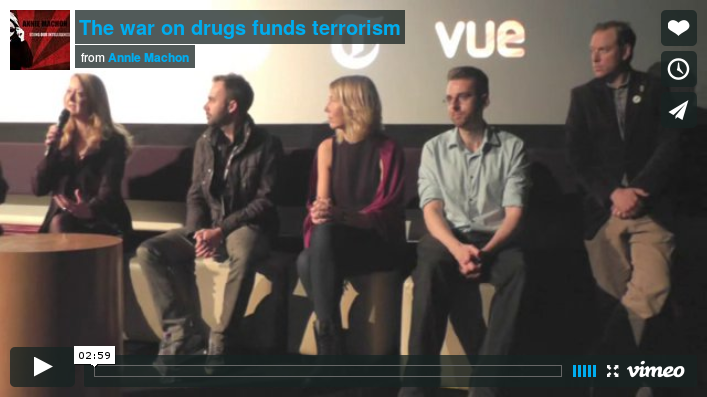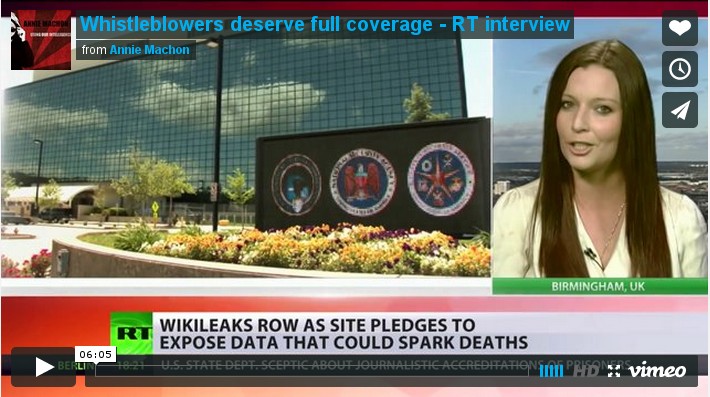First published on RT Op-Edge, and also Consortium News.
During the seemingly endless US election, a few months ago Donald Trump said at a convention that NATO is not a gift that America can keep giving. In his stated view — at the time — the other member states should be expected to make a greater financial contribution (the USA currently contributes 70% of NATO’s budget) and if not they could not expect automatic protection in the face of an attack.
On 13th November in the UK’s Observer newspaper, the Secretary General of NATO, former Norwegian Prime Minister Jens Stoltenberg, wrote a think piece in response and acknowledged the need for more widespread contributions, while crying up the historic importance and future need for NATO by citing growing Russian “assertiveness” (diplo-speak for aggression) and the threat from international terrorism.
I was invited onto RT to analyse this and am here expanding on some of the points I made in an always-all-too-brief interview.
Stoltenberg was right to acknowledge Trump’s concerns about the contributions to NATO. But I think that he was also addressing another and already-serving president somewhat closer to home — head of the European Commission and totemic Eurocrat, Jean-Claude Juncker — who for a while now has been plotting an integrated EU army and who ramped up the rhetoric last week after Trump’s victory. The head of NATO is naturally not going to be too happy that the EU is poaching on his territory.
It was also reported in The Observer that France and Germany are planning to announce the acceleration towards a EU army over the coming weeks. So much for European-wide consensus. It would appear that Juncker also sees this as a bargaining position in future Brexit negotiations, if Britain ever does get around to triggering Article 50. Any EU army would need the UK’s contribution — not just the armed forces, which are the second largest in the EU, but also continued close coöperation with the intelligence agencies.
After all, if both the UK post-Brexit and the USA after the ascension of Trump become increasingly isolationist and isolated, it would be natural for the two countries to pivot towards each other to the increasing exclusion of Europe. The UK/US “special relationship” has always been heavily predicated on the uniquely close working relationship of their spies, and the EU will fear being left further out in the cold.
So, if Juncker carries on regardless with his vanity EU army project and Britain agrees to contribute post-Brexit, there may be other sweet deals on offer to the UK during the Brexit negotiations. At least, that seems to be the position Juncker seems to be oiling his way towards.
But the fundamental question has to be asked: why, now, do we need either a New Model EU army or the cavalier NATO? Stoltenberg tried to address this in his article:
“In the last few years we have seen a dramatic deterioration of our security, with a more assertive Russia and turmoil across north Africa and the Middle East. Nato allies have responded together. We have implemented the biggest reinforcement of our collective defence since the cold war. [.…] This is deterrence, not aggression. […] Nato also continues to play a crucial role in the fight against terrorism. Every Nato ally is part of the US-led coalition against Islamic State…”
Let us unpick these comments.
Firstly, is Russia indeed becoming more of a military threat, or is this just so much diplomatic grandstanding? After all, is it Russia or NATO that has been more, umm, assertive over the last 27 years?
In answer I refer you back to an article I wrote two years ago after the 25th anniversary of the fall of the Berlin Wall. Referencing the work of former senior CIA officer and fellow Sam Adams Associate, Ray McGovern, it made clear that a deal was made between the Soviet Union of the time and the US and that, in return for the withdrawal of 260,000 Soviet troops from the GDR and the reunification of Germany, NATO would not move one inch further east than the German border.
Well, today we can see the result of these negotiations — another twelve countries, most in Eastern Europe and right up to the Russian border, have been assimilated into NATO. Recently within most of these border countries large-scale military exercises have been provocatively and publicly staged, plus missile “defence ” systems have been planted in the fertile paranoiac soil of an increasingly aggressive and nationalistic Poland.
Yes, Russia has in retaliation been conducting its own border exercises. The leadership has to be seen to be doing something, otherwise it will appear weak and not protecting its own people. That might be “assertive”, but it’s certainly not “aggressive”.
Nor let us forget the fact that in 2008 NATO was warm towards the idea of Ukraine and Georgia joining, provided they could meet a few conditions. This would be taking Western forces directly into Russia’s back yard. It would be encircling Russia’s border with the rest of Europe with a new “Iron Curtain”. And I have to say that *is* an aggressively political move at the very least.
How did this play out? Well, first stop for the campaign of Russian demonisation was Georgia, under Western neo-con puppet president Mikhail Saakashvili , invading a small and ethnically Russian segment of Georgia, South Ossetia. Russia responded by protecting the population, and then was excoriated across the Western world as conducting an unprovoked invasion of Georgia. This myth has long been exposed factually, but it is the hysterical headlines of the time that residually stick in most people’s minds.
Similarly in Ukraine. In 2014 a coup against the elected head of state, Viktor Yanukovych, apparently partly orchestrated by the USA as we know from intercepted calls between the Assistant US Secretary of State for Europe, Victoria Nuland and US Ambassador to Ukraine, Geoffrey Pyatt.
Interestingly, it was Yanukovych who blocked Ukraine’s accession to NATO in after his election in 2010, perhaps an additional motivation for the 2014 coup.
All this laid bare the fact that the US had pumped $5 billion in to subvert the Ukrainian state over the preceding few years and that, in the face of European opposition to it, the US thought “fuck the EU”. And yet still the EU acquiesced to US-led sanctions against Russia that have hit the EU economy hard.
And the USA accused Russia of meddling in their democratic processes this year? Pot and kettle springs to mind.
Add to this a probably NATO-approved strike on a Russian jet involved in the Syrian conflict earlier this year by NATO member Turkey (at the time one of the closest trading partners of Russia and which, temporarily, caused bilateral damage that has since been repaired) and the military wing of Western interests is not exactly coming up smelling of roses.
But perhaps NATO was just being “assertive”.
So to Stoltenberg’s second point of justification for NATO: the success that it has had combating the threat of international terrorism.
Where can I start with this? Since NATO invoked Article 5 (when one state is attacked, all must respond) in the wake of the 9/11 attacks against America, western countries have been dragged into war after illegal war across the Middle East, central Asia and North Africa.
Let us examine the roll-call of successes: Afghanistan (now back in the hands of the Taliban warlords and supplying ever more heroin to the illegal drug trade that goes some way to funding terrorist groups, including ISIS); Iraq, now a basket case and the cradle of ISIS; Libya ditto plus the drugs; Yemeni communities being vaporised with “precision” bombs by US proxy Saudi Arabia: and Syria of course.
So the NATO Secretary General’s second justification of the organisation’s continued existence is not exactly what one would call compelling. But I suppose he had to try, when Juncker’s threatened folie de grandeur that is the EU army is even less inspiring.
So, back to President-elect Donald Trump. What will he do, faced with this mess of competing western military/security interests and Euro-bureaucrat careerists? Perhaps his US isolationist position is not so mad, bad and dangerous to know as the wailings of the western liberal press would have us believe?
American “exceptionalism” and NATO interventionism have not exactly benefited much of the world since the end of the Cold War. Perhaps the time has indeed come for an American Commander-in-Chief who can cut deals, cut through the sabre-rattling rhetoric and, even unintentionally, make a significant contribution to world peace.
Stranger things have happened. After all, outgoing President Obama won the Nobel Prize for Peace a mere eight months after his inauguration.…






